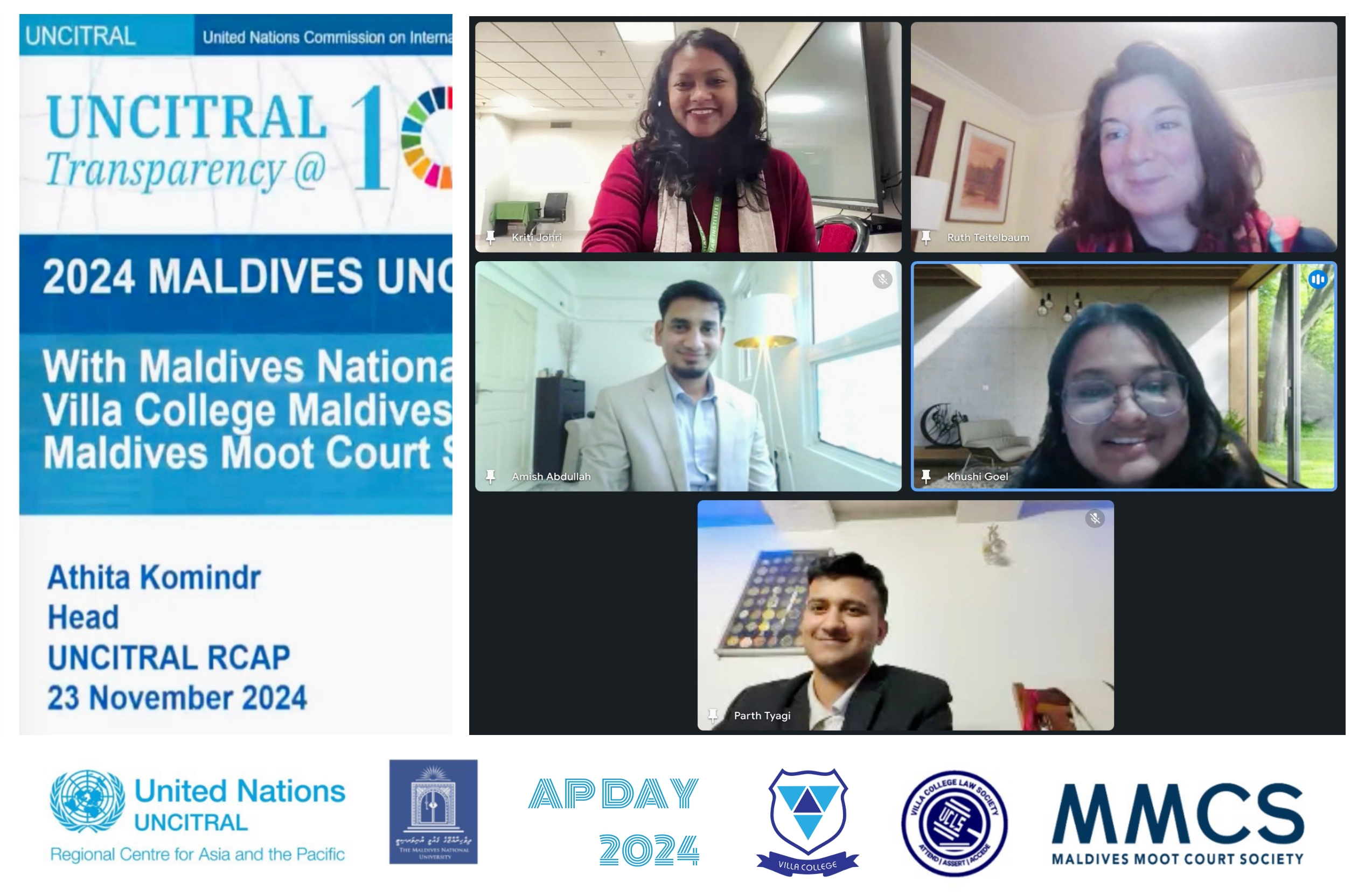In 2024, √‹Ő“ ”∆Ķ reaffirmed its role as a trusted and impartial platform for advancing economic policy, entrepreneurship, and employment discourse in the Maldives. Through well-facilitated dialogues, the College brought together stakeholders from government, private sector, academia, and civil society to co-create solutions addressing the country‚Äôs most pressing economic and workforce challenges. All engagements were grounded in academic neutrality, respectful debate protocols, and balanced representation, ensuring a safe environment for sharing diverse perspectives. The outcomes ranged from policy recommendations and curriculum reforms to national working groups and sector-specific action plans, driving tangible progress towards inclusive economic growth.
Policy Forum: Fostering Entrepreneurial Growth Through Innovative Economic Policies: On November 18, 2024, √‹Ő“ ”∆Ķ, in partnership with the Business Centre Corporation (BCC), hosted a Policy Forum on "Fostering Entrepreneurial Growth through Innovative Economic Policies" as part of Global Entrepreneurship Week. Held in a neutral academic setting, the forum functioned as a crucial safe space for frank discussion, bringing together policymakers, SME representatives, entrepreneurs, investors, and academic experts. The panel featured balanced representation from government (former State Minister), the private sector, and academia, ensuring all stakeholders had an equal opportunity to discuss sensitive policy innovation, SME access to finance, and integrating sustainability into economic strategies. The professionally moderated dialogue generated actionable recommendations designed to foster a more inclusive and supportive entrepreneurial ecosystem in the Maldives, directly influencing policy discourse and informing SME support initiatives.

Panel Discussion: The Role of Schools and Colleges in Entrepreneurial Education: The Qasim Ibrahim School of Business (QISB) hosted a panel discussion on "The Role of Schools and Colleges in Entrepreneurial Education", providing a safe and balanced platform for dialogue among stakeholders. The session was impartially moderated and featured diverse representation, including a regulator (Registrar of Companies), a school leader (Principal of Ghiyasuddin International School), and a higher education leader. The discussion centred on embedding entrepreneurial thinking into curricula and creating supportive regulatory frameworks for early-stage innovation. By ensuring all perspectives‚ÄĒfrom policy and regulation to on-the-ground teaching‚ÄĒwere heard, the event underscored the importance of a collaborative, multi-stakeholder approach, resulting in actionable proposals to advance entrepreneurial education in the Maldives.
 Panel Discussion: Critical Role of Data Sharing in Facilitating Evidence-Based Decision-Making: The Faculty of Engineering and Technology hosted a panel discussion on the , creating a neutral and solution-focused platform where policymakers, statisticians, and civil society actors could openly discuss challenges in data sharing without political or institutional pressure. This crucial safe space for frank dialogue featured key government agencies, including the Information Commissioner’s Office and the Maldives Bureau of Statistics, alongside civil society representatives. The discussion explored how to balance transparency with privacy and improve inter-agency data integration. A key, tangible outcome was the establishment of a working group tasked with drafting national guidelines for inter-agency data collaboration, marking a significant step toward strengthening evidence-based governance in the Maldives.
Panel Discussion: Critical Role of Data Sharing in Facilitating Evidence-Based Decision-Making: The Faculty of Engineering and Technology hosted a panel discussion on the , creating a neutral and solution-focused platform where policymakers, statisticians, and civil society actors could openly discuss challenges in data sharing without political or institutional pressure. This crucial safe space for frank dialogue featured key government agencies, including the Information Commissioner’s Office and the Maldives Bureau of Statistics, alongside civil society representatives. The discussion explored how to balance transparency with privacy and improve inter-agency data integration. A key, tangible outcome was the establishment of a working group tasked with drafting national guidelines for inter-agency data collaboration, marking a significant step toward strengthening evidence-based governance in the Maldives.



 Panel Discussion: Critical Role of Data Sharing in Facilitating Evidence-Based Decision-Making: The Faculty of Engineering and Technology hosted a panel discussion on the , creating a neutral and solution-focused platform where policymakers, statisticians, and civil society actors could openly discuss challenges in data sharing without political or institutional pressure. This crucial safe space for frank dialogue featured key government agencies, including the Information Commissioner’s Office and the Maldives Bureau of Statistics, alongside civil society representatives. The discussion explored how to balance transparency with privacy and improve inter-agency data integration. A key, tangible outcome was the establishment of a working group tasked with drafting national guidelines for inter-agency data collaboration, marking a significant step toward strengthening evidence-based governance in the Maldives.
Panel Discussion: Critical Role of Data Sharing in Facilitating Evidence-Based Decision-Making: The Faculty of Engineering and Technology hosted a panel discussion on the , creating a neutral and solution-focused platform where policymakers, statisticians, and civil society actors could openly discuss challenges in data sharing without political or institutional pressure. This crucial safe space for frank dialogue featured key government agencies, including the Information Commissioner’s Office and the Maldives Bureau of Statistics, alongside civil society representatives. The discussion explored how to balance transparency with privacy and improve inter-agency data integration. A key, tangible outcome was the establishment of a working group tasked with drafting national guidelines for inter-agency data collaboration, marking a significant step toward strengthening evidence-based governance in the Maldives.







